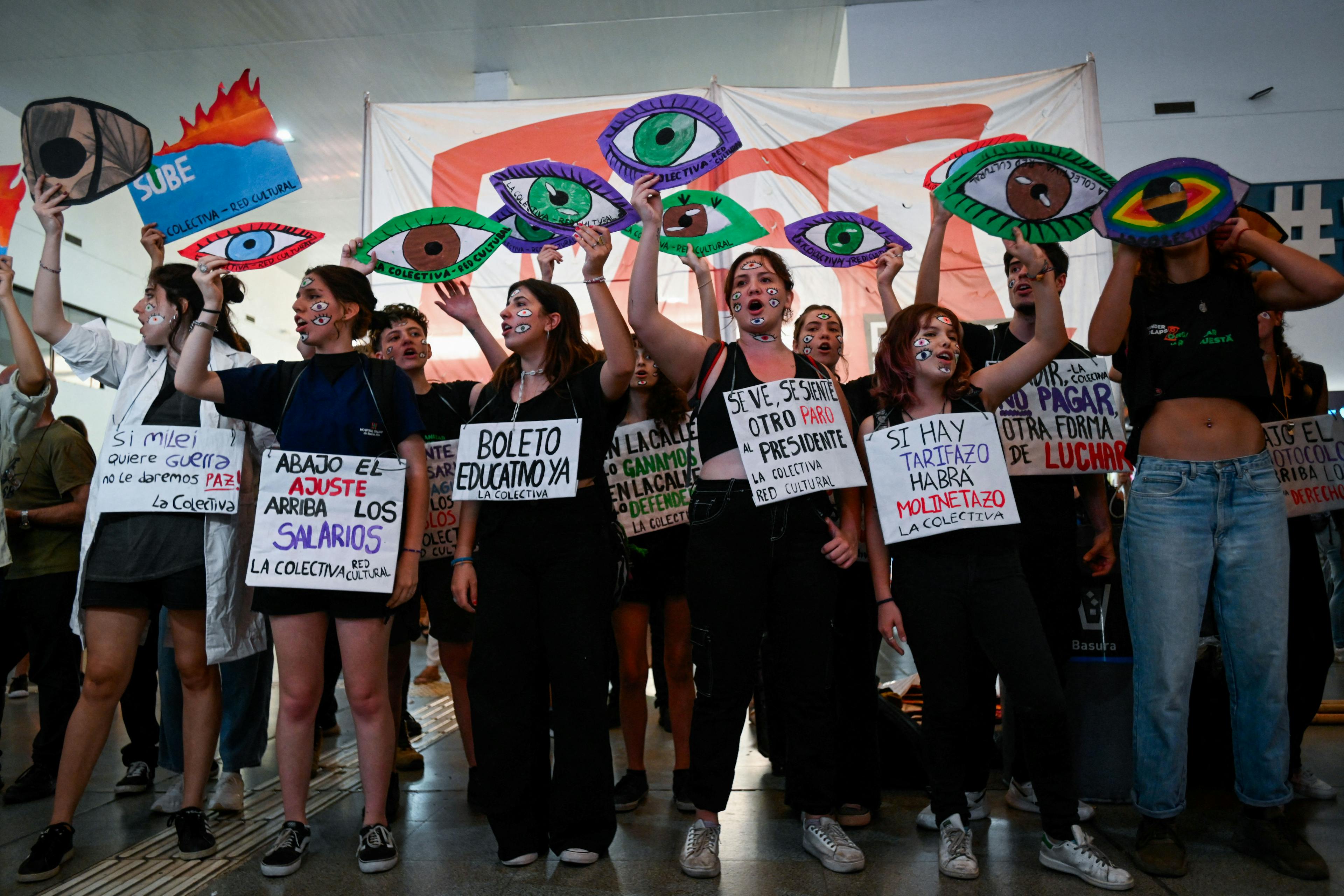The fight continues in Argentina

Amid extreme social and economic crisis and a brutal austerity package proposed by far-right President Javier Milei, the Argentine working class won an important victory last month: the government withdrew a bill that proposed sweeping privatisations of state-owned firms, budget cuts and attacks on labour rights, among other things.
On the day of the vote in the lower chamber of the Congress, there were tense scenes in Buenos Aires. Thousands of protesters in front of the building, led by the left, resisted pepper spray and batons from police. Inside, Milei’s party, Liberty Advances (LLA), and its congressional allies, who lack a majority, tried to convince a centrist bloc to support the bill. Initially they were successful, with the bill passing “in general”. But when it came to a vote on each chapter, resulting in successive defeats, LLA withdrew the bill.
The bill was the centrepiece of Milei’s austerity package, which makes its defeat a significant setback. Further, to get the bill passed “in general”, he had to water it down and remove more than half of the articles in the original version.
But despite the government’s defeat, which was propelled by a huge general strike followed by mass protests around the country, Milei’s far-right agenda is by no means buried.
Annual inflation is running at nearly 250 percent, and the poverty rate has increased from 45 percent in December to 57 percent. Almost every day, there is a new attack on workers’ living standards. After the legislative setback, Milei announced cuts to public transport subsidies, which will result in bus and subway fares rising by more that 360 percent in coming months. He has also announced cuts to pensions. The most reactionary LLA legislators also introduced a bill to criminalise abortion. While Milei distanced himself from this, it gives an indication of the type of social policies his party wants to impose on Argentina.
The government retains the backing of a considerable section of the Argentine capitalist class and has strong support from the international capitalist class. For example, the International Monetary Fund has released billions of dollars in emergency loans and has praised Milei. Further, a recent Wall Street Journal opinion piece was titled “America needs a Javier Milei”, while other articles talk of global investors’ enthusiasm at the prospects of getting their hands on Argentine public assets.
This is why they support Milei’s no-holds-barred austerity drive. But he faces obstacles. First, several of his proposed laws or aspects of them have been struck down by the courts as unconstitutional. Second, his lack of a congressional majority means he has to rely on a centrist bloc to pass legislation. This bloc has proved difficult to win over. Even members of the coalition allied to Milei voted against the bill. However, they largely criticise the means rather than the ends, seeing his approach as authoritarian by trying to assume legislative powers and govern under a state of emergency.
The biggest obstacle for Milei, however, is arguably the working class. But it is far from a unified opposition. Large sections of workers voted for Milei and accept the idea that he should be allowed to implement his proposals. Milei has made direct appeals to this group by claiming that a monthly inflation rate under 25 percent should be a cause for celebration and proof his plan is working. In January, this was achieved with monthly inflation at 20.6 percent.
However, there is a sizeable minority of the working class, not uncommonly under the influence of the socialist left, that views Milei’s plans for what they are—an attempt to make the working class pay for the crisis of Argentine capitalism and give public assets to international capitalists. A key group within this minority are cultural sector workers, who have held large, open assemblies in which debates are held about how to organise resistance to the government’s attacks. Similar processes are playing out among other groups of workers.
But the working class also faces obstacles—principally the trade union bureaucracy, which has so far refused to call a second general strike. Despite the left being strong enough independently to move into action a minority of the most combative workers, a full-scale general strike still requires a call from the major union confederations. Consequently, the slogans of the left continue to be demands on the bureaucracy (“General strike and plan of action”) and against Milei (“Until Milei’s defeat”).
Ultimately, the struggle to defeat Milei and his far-right agenda will not be won easily or quickly, nor through the withdrawal of any particular bill. It will be a drawn-out process involving partial victories and defeats, and lasting throughout his presidency.